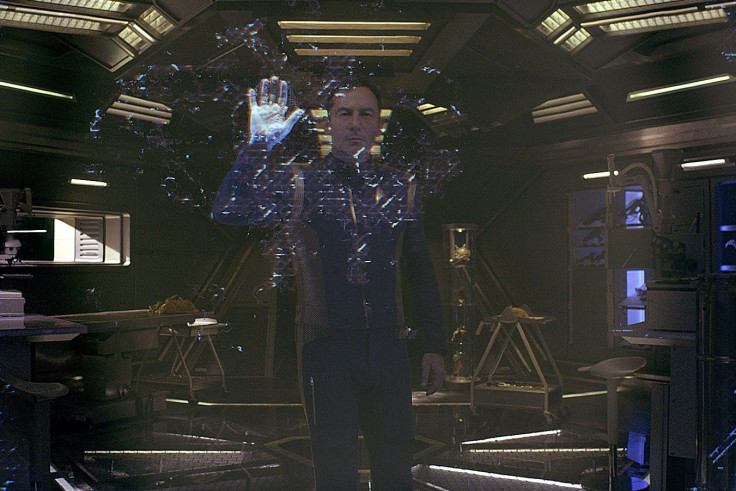The conflict between art and commerce is rarely more clearly delineated than in a new Variety article about Star Trek: Discovery. On one side, this new Discovery feature dives into the business rationale behind both the hiring and firing of Hannibal showrunner Bryan Fuller and CBS’s gambit to use Discovery to lure subscribers to their boutique streaming service. On the other, cast members like Sonequa Martin-Green (protagonist First Officer Michael Burnham) and Jason Isaacs (Captain Gabriel Lorca) share their creative aspirations for Discovery, looking beyond its utility as a product.
What the network wants most of all from Star Trek: Discovery is to grow its CBS All Access streaming service’s subscriber base. Right now, that number is somewhere under two million, but CBS Corporation CEO Les Moonves wants to get that to four million by 2020.
The actors involved, naturally, have quite different goals in mind for the series. Part of Isaac’s motivation for joining Star Trek: Discovery was his distaste for the political and social climate epitomized by Donald Trump.
“The world is complicated and horrible, and I don’t know how to explain to my children the insanity of the people who are in charge of it at the moment,” Isaac told Variety. “I thought it was a good story to tell — and something I would be happy to watch — about presenting a vision of the world that’s full of drama but also full of resolution and unity.”
How effectively Star Trek: Discovery will serve as an antidote to Republican and right-wing politics depends on how effectively an anti-Trump message can be sold, something very much in question after a number of troubling production changes ahead of the series premiere. After ridding itself of Fuller, who Variety declared “not a typical CBS showrunner” for failing to prioritize “deadlines and budgets above all else,” Discovery became the focus of increasing corporate interference. After dumbing down the “heavily allegorical and complex story line,” CBS brought in notorious studio hack Akiva Goldsman to rewrite at least one of Fuller’s scripts (the two share a screenplay credit). Originally selected to mollify Star Trek fans, Fuller’s “street cred” (he wrote for two previous Star Trek series) wasn’t enough to preserve his creative control over the project. “We felt like it would be smart business to give the fans what they wanted,” David Stapf, president of CBS Television Studios, told Variety. “There’s not a whole lot of people who have the visionary capability along with the Star Trek credibility and experience. So Bryan became a good and obvious choice to do that.”
The subordination of Star Trek: Discovery’s creative or political aims to the CBS streaming strategy wasn’t lost on replacement showrunners Aaron Harberts and Gretchen J. Berg. “Our metric right now is Les Moonves saying, ‘I’ve watched the first six episodes, and I love them,’” Harberts told Variety. “That’s the metric at the moment.”
The Moonves metric will remain the best way to understand Star Trek: Discovery. Variety characterizes Star Trek’s “persnickety fan base” as “both blessing and curse” for CBS, useful only to the extent that they flock to the All Access platform.
It’s certainly possible that Star Trek: Discovery can fulfill humanist, creative and corporatist objectives simultaneously, but the new Variety piece should clarify just where the show’s priorities lie. Unlike creator-driven projects like Twin Peaks: The Return, Star Trek: Discovery is a marketing vehicle first. There’s nothing remarkable in that — it’s certainly been true of other Trek series, but it runs counter to the message CBS would prefer fans hear.
“Anyone doing a new iteration of Star Trek, you have to understand how deep it is; you have to understand how important it is,” Martin-Green said. “You have to understand how much of a pillar it is to our culture. I think you need that in order to really give it the weight it deserves, and I think that — I hope that more than anything — people get the sense of how serious we take this.”
But Martin-Green and Isaac’s desire for a meaningful Star Trek: Discovery, capable even of countering Trumpism, will always be secondary to the Moonves metric.
- Richly redesigned Klingons
- Complex and explicable motives
- Great new Starfleet characters
- Incredible production design
- Generic space combat and action
- Too many flashbacks
- Eschews subtext, doesn't put enough faith in the audience



















